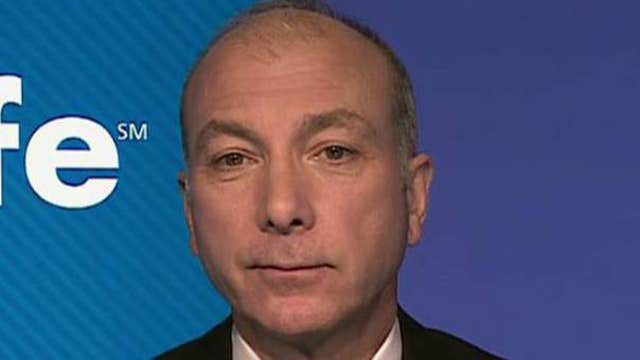MetLife to Sue Regulators Over Tougher Rules
MetLife Inc (NYSE:MET) said it plans to sue U.S. regulators on Tuesday over a decision to subject the insurer to tougher oversight because it harbors enough risk to endanger the financial system in a crisis.
The largest U.S. life insurer unsuccessfully contested a ruling by the Financial Stability Oversight Council (FSOC) last month, and a lawsuit is its last resort to escape being overseen by the U.S. Federal Reserve.
"FSOC's designation of MetLife is premature," MetLife Chief Executive Officer Steve Kandarian said in a statement. "The Council should wait until the rules are in place and it knows the impact on designated firms."
The remark was a reference to upcoming rules from the Federal Reserve about capital requirements for insurers.
The lawsuit will renew scrutiny of the process laid out in the 2010 Dodd-Frank financial reform law in which FSOC, the top U.S. risk council, designates certain financial companies as "systemically important," imposing tougher rules and Fed oversight.
FUND MANAGERS WATCH
Lawmakers and companies have complained that the designation process is opaque and that the risks are not sufficient to warrant the tighter rules.
"It is completely appropriate for private citizens and companies to take the avenues of due process afforded them under the law," said Scott Garrett, a Republican member of the House Financial Services Committee. "Congress will continue to make FSOC oversight and reform a top priority."
A person familiar with the matter said the FSOC, comprised of the top U.S. financial regulators, plans to meet this month to discuss possible reforms.
"The question we keep asking FSOC is, 'how can you actually designate a company without knowing what the consequences are?'" said Alice Joe, a managing director at the U.S. Chamber of Commerce's Center for Capital Markets Competitiveness.
A spokeswoman for the Treasury Department, which houses the FSOC, said on Tuesday, "The Council's decision to designate a nonbank financial company is reached only after a thorough analysis and extensive engagement with the company, both of which occurred in this case. We are confident in the Council's work."
For MetLife's lawsuit to succeed, it likely has to prove FSOC's decision was "arbitrary and capricious," which lawyers say poses a high, though not insurmountable, hurdle.
MetLife's large size and a range of activities in risky financial markets outside its core insurance business are among the factors that led regulators to give it the designation.
The lawsuit could also affect firms that may be considered for designation. Large asset managers such as BlackRock Inc <BLK.N> and Fidelity Investments are aggressively campaigning to avoid the designation.
MetLife was the third insurer designated by the FSOC as systemic. American International Group Inc <AIG.N>, which almost collapsed during the credit meltdown, and Prudential Financial Inc <PRU.N> chose not to fight the additional oversight.
Including MetLife, the Fed would oversee almost one-third of the industry in the United States, a study by the Bipartisan Policy Center, a Washington think tank, showed last year.
However, it will likely be months before the Fed finalizes capital requirements and other rules for insurers, and it was unclear how they will be integrated with the patchwork of state rules.
MetLife argued on Tuesday that by with the move, insurance will become more expensive without enhancing financial stability.
Insurers say they do not harbor the same type of risks as banks, which make large loans to clients that they cannot get back on short notice if the money is needed during a financial crisis.
MetLife said it intended to file its lawsuit in U.S. District Court for the District of Columbia and has hired law firms Gibson, Dunn & Crutcher LLP and Sullivan & Cromwell LLP. The complaint was not yet available on Tuesday.
Eugene Scalia, a lawyer at Gibson, Dunn, is on MetLife's team. The son of Supreme Court Justice Antonin Scalia, he has a track record of successfully fighting decisions by federal regulators.
(By Douwe Miedema; Additional reporting by Sarah N. Lynch; Editing by Eric Walsh, Doina Chiacu and Jeffrey Benkoe)




















